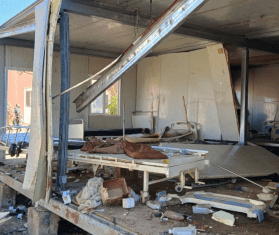Paris, June 3, 2002 — On Wednesday, May 29, 2002, Mourat Ziazikov, the new president of Ingushetia and General of the Special Services, along with Akhmad Kadyrov, head of the Chechen pro-Russian administration, signed an agreement foreseeing the return to Chechnya of Chechen refugees currently in Ingushetia. This agreement raises major concerns for the future of almost 200,000 Chechens who have taken refuge in Ingushetia.
Doctors Without Borders/Médecins Sans Frontières (MSF) reasserts that the current climate of extreme violence in Chechnya is the principal reason why the civilian population has fled from, as well as why they have refused to return to, Chechnya.
Any repatriation must only take place on a voluntary basis and only if the conditions for safety in the country of origin permit repatriation. It is clear that these conditions are absolutely not in existence today.
In Chechnya, the intensity of violence has not diminished. On the contrary, bombardments, cleansings, rackets, death squads and tortures are the norm. The war, always described by Moscow authorities as an anti-terrorist operation, targets a civilian population that has been deprived of all rights, assistance, and protection—and who have been subjected to particularly violent abuses of power.
The weakness of aid being provided, whether incentives or threats, to try to force the refugees to go back to Chechnya has not, to the present day, involved massive voluntary returns. On the contrary, the exodus from Chechnya has continued. MSF is disturbed by this agreement which constitutes a new stage towards the forced return of the civilians, with the question of their safety not being solved, nor even asked.


